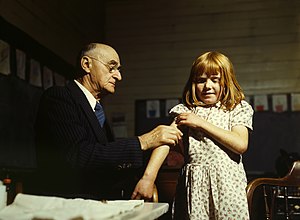 Mathew Webb left a sales job in menswear for a sales job in pharmaceutical drugs 10 years ago and suddenly found himself surrounded by money. As a sales representative for a major drug company, he was expected to entertain doctors two or three nights a week. There were seats in elaborate sporting events in private stadium suites at major games and dinners at five-star restaurants.
Mathew Webb left a sales job in menswear for a sales job in pharmaceutical drugs 10 years ago and suddenly found himself surrounded by money. As a sales representative for a major drug company, he was expected to entertain doctors two or three nights a week. There were seats in elaborate sporting events in private stadium suites at major games and dinners at five-star restaurants.
At that point, openly using gifts and money to influence doctors was considered standard practice. But much of that came to a crashing halt after July 2002. That's when the pharmaceutical industry's trade group, known as PhRMA, published its Code on Interactions with Healthcare Professionals — voluntary guidelines that substantially changed the game for reps like Webb.
The free tickets were pulled, the tropical vacations abandoned, even branded trinkets were banished. But the practice of trying to influence doctors with money didn't disappear — it shifted. Today when a rep like Webb wants to get a doctor to write prescriptions for his drug, there's still one almost foolproof way to get that task accomplished.
To get a doctor to write more prescriptions, Webb asks the doctor to become a speaker.Earlier this week the investigative news organization ProPublica published a searchable database of doctors who have taken money from seven drug companies in the past two years. The database features over 17,000 doctors, many of whom are paid substantial sums of money to act as speakers for drug companies.
But because only these seven drug companies have publicly reported the payments they give to physicians, those doctors represent only a small fraction of the doctors who actually speak for pharmaceutical companies in the U.S. Most estimates place the number of physician speakers somewhere in excess of 100,000.





 Former President Donald Trump’s election victory and coming return to the White House will likely bring...
Former President Donald Trump’s election victory and coming return to the White House will likely bring... Just days after Texas banned abortion past six weeks of pregnancy, a woman died after doctors...
Just days after Texas banned abortion past six weeks of pregnancy, a woman died after doctors... A group of health care providers and two Louisiana women who were denied abortion care are...
A group of health care providers and two Louisiana women who were denied abortion care are...






























